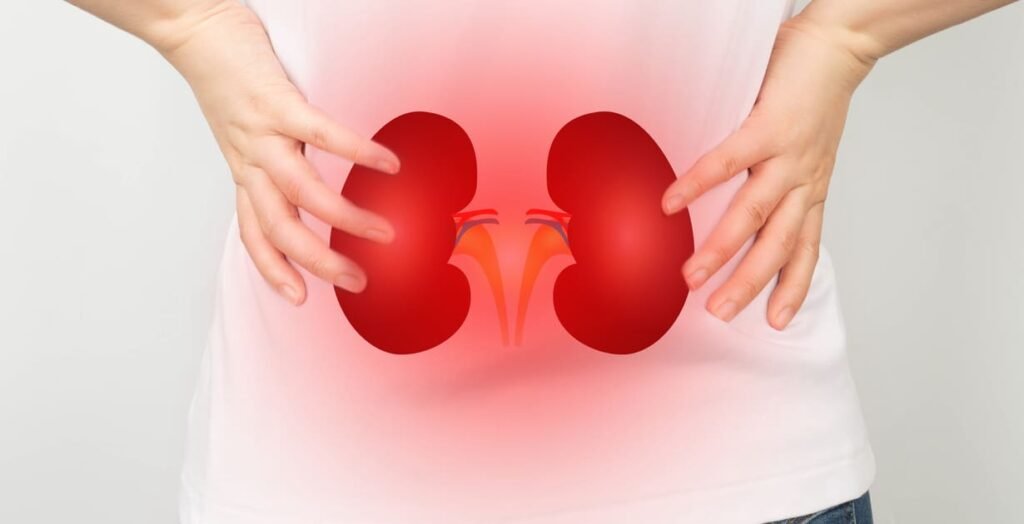Kidney failure, also known as renal failure, is a serious condition where the kidneys lose their ability to filter waste products and excess fluids from the blood. This condition can lead to a range of health issues and requires prompt medical attention. In this blog, we will explore the causes, symptoms, diagnosis, and treatment options for kidney failure to help you understand this critical health concern better.
What is Kidney Failure?
The kidneys are essential organs responsible for filtering waste products, balancing electrolytes, and regulating blood pressure. Kidney failure occurs when these organs are no longer able to perform these vital functions effectively. Kidney failure can be classified into two main types:
- Acute Kidney Failure (Acute Kidney Injury – AKI): This type of kidney failure develops suddenly over hours or days and is often reversible with prompt treatment. Common causes include severe dehydration, infections, certain medications, or sudden injury to the kidneys.
- Chronic Kidney Failure (Chronic Kidney Disease – CKD): Chronic kidney failure develops gradually over months or years and is usually a result of long-term damage to the kidneys. It is often linked to conditions such as diabetes, hypertension, or glomerulonephritis.
Causes of Kidney Failure
Kidney failure can result from various underlying conditions or external factors, including:
- Diabetes: High blood sugar levels can damage blood vessels in the kidneys over time, impairing their ability to filter waste.
- Hypertension (High Blood Pressure): Persistent high blood pressure can damage kidney blood vessels, leading to kidney damage.
- Glomerulonephritis: Inflammation of the kidney’s filtering units (glomeruli) can impair kidney function.
- Polycystic Kidney Disease: A genetic disorder characterized by the growth of numerous cysts in the kidneys, leading to kidney dysfunction.
- Obstructions: Conditions that block the urinary tract, such as kidney stones or an enlarged prostate, can cause kidney damage.
- Infections: Severe infections or sepsis can lead to acute kidney injury.
Symptoms of Kidney Failure
The symptoms of kidney failure can vary depending on the severity of the condition and whether it is acute or chronic. Common symptoms include:
- Fatigue and Weakness: Feeling unusually tired or weak.
- Swelling: Swelling in the legs, ankles, or feet due to fluid retention.
- Changes in Urination: Decreased urine output, or the need to urinate more frequently.
- Shortness of Breath: Fluid buildup in the lungs can cause difficulty breathing.
- Nausea and Vomiting: Feeling nauseated or experiencing frequent vomiting.
- Confusion: Difficulty concentrating or changes in mental alertness.
- Itchy Skin: Accumulation of waste products in the blood can cause itching.
Diagnosis of Kidney Failure
Diagnosing kidney failure typically involves a combination of medical history, physical examination, and laboratory tests. Common diagnostic tests include:
- Blood Tests: To measure levels of creatinine, urea, and electrolytes, which can indicate kidney function.
- Urinalysis: To detect abnormalities in the urine, such as the presence of proteins or blood.
- Imaging Studies: Ultrasound or CT scans to visualize the kidneys and detect structural abnormalities or obstructions.
- Kidney Biopsy: In some cases, a biopsy may be needed to assess the extent of kidney damage or identify the underlying cause.
Treatment Options for Kidney Failure
The treatment for kidney failure depends on the type and stage of the condition, as well as the underlying cause. Treatment options include:
- Medications: To manage symptoms and underlying conditions, such as diabetes or hypertension.
- Dietary Changes: A renal diet may be recommended to reduce the burden on the kidneys by limiting certain nutrients like sodium, potassium, and phosphorus.
- Dialysis: For patients with advanced kidney failure, dialysis may be required to artificially filter waste products from the blood. There are two main types of dialysis: hemodialysis and peritoneal dialysis.
- Kidney Transplant: In cases of end-stage kidney failure, a kidney transplant may be considered. This involves replacing the damaged kidney with a healthy donor kidney.
Prevention and Management
Preventing kidney failure involves managing risk factors and maintaining overall kidney health. Some tips include:
- Control Chronic Conditions: Manage diabetes, high blood pressure, and other chronic conditions with the help of healthcare providers.
- Stay Hydrated: Drink plenty of fluids to support kidney function.
- Healthy Diet: Follow a balanced diet low in sodium, processed foods, and excessive protein.
- Avoid Overuse of Medications: Use medications, especially over-the-counter pain relievers, as directed by a healthcare provider.
Conclusion
Kidney failure is a serious condition that requires timely diagnosis and treatment to prevent complications and improve quality of life. By understanding the causes, symptoms, and treatment options, individuals can take proactive steps to manage their kidney health and seek medical care when necessary. Regular check-ups and a healthy lifestyle play a crucial role in maintaining optimal kidney function and overall well-being.

